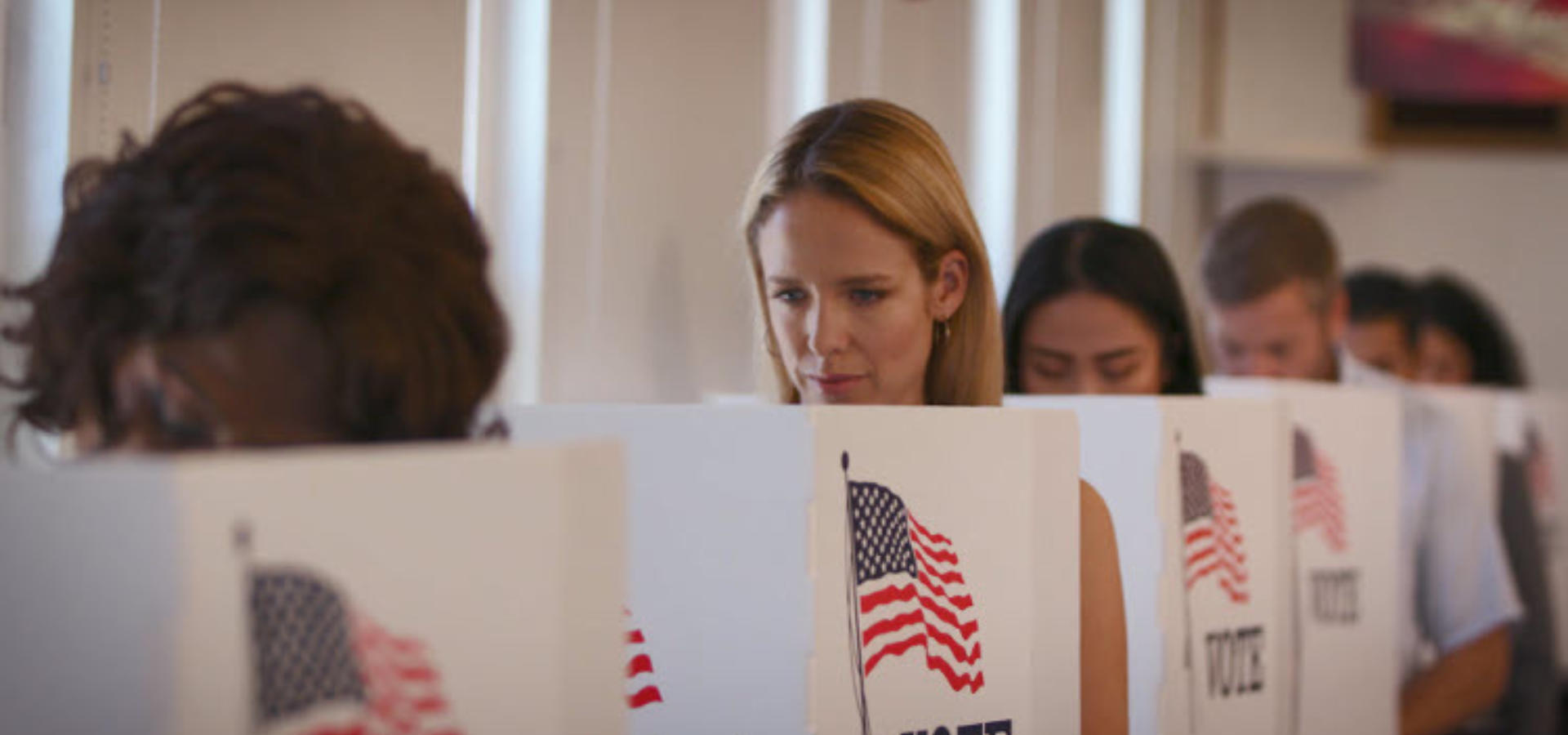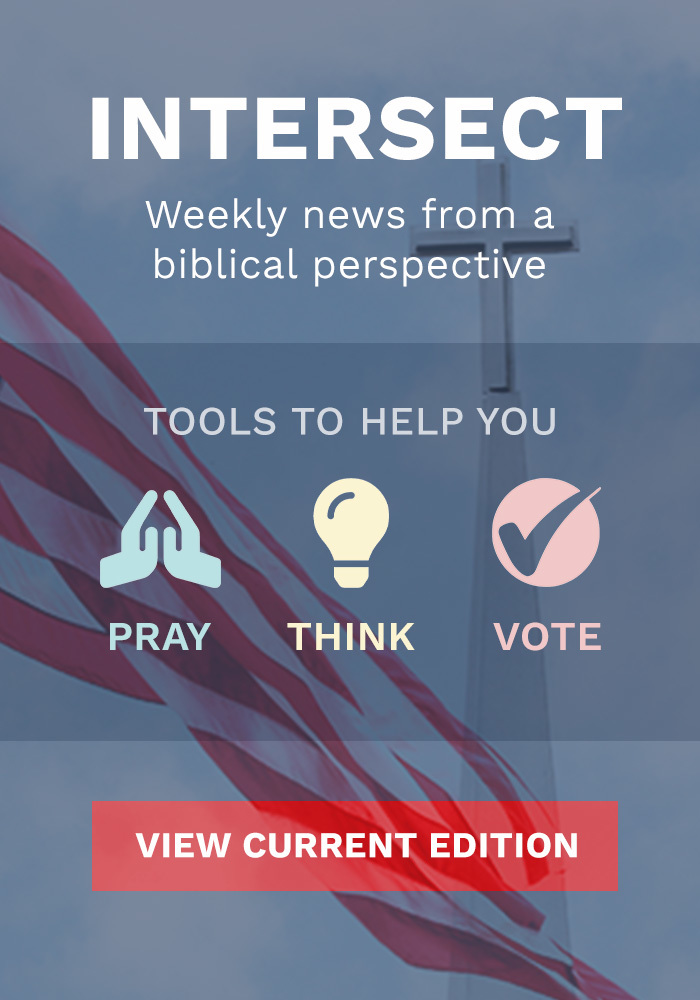
New Initiative Urges All Christians to Vote in November
In 2016, the year President Donald Trump was first elected, white evangelical Christians spoke powerfully in his favor with their votes and are on track to deliver again in November based on polling data. A significant portion of practicing Christians did not vote that year, however, and a new bipartisan initiative called Our Church Votes is hoping to activate them all for Jesus in 2020.
“We are trying to reach every church. We are trying to call every church in America that follows Christ, that believes the Bible is true. We’re asking each and every church to engage their congregation and to hold at least one voter registration drive before the elections to encourage and equip the attendees, the members of their church, to be a part of this process,” Jason Yates, CEO of My Faith Votes, told The Christian Post in an interview Wednesday.
Our Church Votes, which is an initiative of My Faith Votes, a non-partisan movement that encourages Christians in America to vote in every election, says in 2016, more than 25 million Christians chose not to vote. By focusing on their faith in 2020, Yates wants all these inactive Christians, along with active ones, to exercise their right to vote with the principles of Jesus in mind.
The number of inactive Christians, according to Yates, was arrived at through internal research and includes followers of Christ who practice independent or organized religion.
“We recognize that Christians, God gives us passions and pursuits that may lead people one way or the other but what we are calling people to do is to vote not right/left, donkey, elephant, but the Lamb and to think about what Jesus’ principles are,” Yates said.
The Our Church Votes initiative is a resource that was created specifically for pastors and other church leaders to help them engage with their congregations about the political process and reflect on how they can bring their faith to bear on it in a non-partisan way.
“Elections are happening. It’s on everyone’s mind. They hear about it and so how can we help church leadership engage their congregations and encourage them and do it in a way that points to Jesus and nothing else,” the My Faith Votes CEO said.
Some Christians, explained Yates, have disengaged from politics because they have been led to believe that religion and politics shouldn’t mix or there should be a “separation of church and state.” Those mantras, he said, should not be used as a directive to not vote.
“A lot of people are unable to connect their faith to politics. They don’t know how those are connected and they buy into the mantra, frankly, that we hear in our society — that basically that religion and politics don’t mix. That there is a separation of church and state,” he said.
While the initiative has been getting positive feedback from churches, the idea among some that churches shouldn’t engage in the political process has been expressed in some of his meetings, Yates noted.
“I was meeting with a pastor just last week and he was shocked when I shared with him that clause ‘separation of church and state’ does not belong in any of our documents. It’s not in our Constitution, it’s not in the Declaration of Independence, it’s not in the Bill of Rights, and he was shocked. He thought it was because you hear that all the time. And I said ‘no, that doesn’t exist.’
“That was a letter written to the Danbury Church by Thomas Jefferson and it was actually expressing a need for the Church to influence politics but to be separate in spirit from politics to maintain their Christianity.”
Yates highlighted the Johnson Amendment as another reason why some Christians have shied away from the political process. The Johnson Amendment, which has been in effect since 1954, is seen by supporters as a way to separate church and state in modern American life. It forces religious leaders to give up their 501(c)3 tax-exempt status if they choose to give sermons endorsing specific candidates ahead of elections. It also prohibits churches, synagogues, mosques, and other nonprofit institutions from raising money for political candidates.
“I think the Johnson Amendment in the late 1900s also influenced that belief because it says churches as non-profits, 501(c)3s cannot speak into, [what] a lot of people heard, is cannot speak into politics. Of course, they can’t endorse candidates, they can’t give money to candidates, etc., and they can’t oppose candidates. I think with the Johnson Amendment and this belief around this clause of ‘separation of church and state’ there’s a lot of people who just buy into that and believe we need to be separate, we shouldn’t be part of politics,” he said.
This election cycle, however, Yates wants Christians to think of their political participation as adding “salt and light” to the process.
“We’re called to be an influence in our culture, in our society. I often talk about the verse Galatians 6:10 that says as we have opportunity, let us do good to everyone, especially those in the faith and I describe our opportunity to vote is an opportunity to do good. It’s not the good that the world necessarily knows or believes but it’s a good of who we serve,” he said.
Some Christians, he argued, may also think that their vote won’t make a difference but urged them to look at their participation as part of a collective that can speak loudly.
“A lot of us give to charities. A lot of us do things that our one act does not necessarily impact the overall objective or move the overall objective or mission forward but our collective action does. So if we want to solve poverty and we give to a group that feeds the homeless, our one gift doesn’t always move that forward but our collective support does,” he said. “If we’re reacting to a natural disaster, our one gift or act of volunteerism doesn’t always make a large dent in that effort but our collective acts do and it’s the same with the voting. And so why do we think of it differently when it comes to voting? We shouldn’t.”
The initiative comes as the nation is fighting a new pandemic that has led to shutdowns of the economy and churches. Two-thirds of Americans believe the COVID-19 outbreak will disrupt the presidential election, according to Pew Research. Many Americans, particularly Democrats, believe it will impact voter turnout.
Notably, a 2015 study, Does Church Attendance Cause People to Vote? Using Blue Laws’ Repeal to Estimate the Effect of Religiosity on Voter Turnout, published by Cambridge University Press, found that church attendance may have a significant causal effect on voter turnout. It showed that when the blue laws restricting Sunday retail activity were repealed in the U.S., it led to a 5% decrease in church attendance which correlated to a 1% drop in voter participation.
“This decline in turnout is consistent with the large effect of church attendance on turnout reported in the literature, and suggests that church attendance may have a significant causal effect on voter turnout,” the study said.
As the coronavirus outbreak has forced most Christians to worship from home, with church doors closed, “attendance” among practicing Christians has gone down, according to a recent Barna report.
“Recent data show that among practicing Christians — those who identify as Christian, agree strongly that faith is very important in their lives and attend church at least monthly (prior to COVID-19) — over half (53%) say they have streamed their regular church online within the past four weeks. Another 34 percent admits to streaming a different church service online other than their own, essentially ‘church hopping’ digitally,” Barna stated in its report this month.
“About one-third of practicing Christians (32%) says they have done neither of these things. Though some of these churchgoers may be part of the minority of congregations that were still gathering for physical worship during these weeks, we can, for the most part, confidently interpret this group as those who have dropped out of church for the time being.”
Yates noted that the impact of the pandemic in getting his message out is a “big issue” but he is still happy that he can connect with churches online.
“This is a big issue. First of all, churches have migrated to digital connection with people and much smaller groups. So the idea, even with Our Church Votes, when we launched that, we launched it with an idea that a church is gathering and you have a pastor who has a voice and can speak into and talk to the group, maybe even provide people with forms to register to vote, that type of thing. And now we have a much different situation at least as far as the pandemic and what that looks like,” he said.
“One of the things that I’m really pleased about is all of the tools and resources that we offer through Our Church Votes are provided in such a way that a church absolutely can engage in a digital means — whether that’s social media, whether that’s through their website, whether that’s through email — and provide people with ways to engage, not just to register to vote, but also sign up to get voting reminders for every election going forward and do that all digitally, do it all online without paper, without handling things, without much in the way of even human resources to do that.”
(This article was originally featured in The Christian Post)
###
My Faith Votes— is a ministry that motivates, equips, and activates Christians in America to vote in every election, transforming our communities and influencing our nation with biblical truth. An estimated 25 million Christians who are registered to vote, fail to vote in presidential elections. My Faith Votes is on a mission to change this statistic by helping Christians act on their faith and vote in every election. When we pray unceasingly for our nation, think biblically about the issues, and vote consistently in every election the impact of Christians taking action from the local to the state and federal level will be unprecedented.
Website | www.myfaithvotes.org Twitter | @MyFaithVotes Facebook | My Faith Votes

 TV
TV
It would be nice to see Christians vote in support of the principles of Jesus as this article states. This administration does not follow nor uphold the principles espoused by the Christian faith. Jesus taught that we should look after our fellow man, lift up those in need of help, call out injustice and wrongful persecution. Yet the majority of Christians seem to turn a blind eye to the wrongs committed by this administration on a daily basis.
And the separation of church and state is captured in the first amendment. While it does not use the exact words “separation of church and state” it does prohibit the establishment of a state religion. And jurisprudence upholds this founding fathers’ philosophy in countless rulings.
The hypocrisy of those Christians who support this administration is frightening. The church leaders who continue to encourage the support is a reason for the ongoing social, racial, economic, and religious conflict this country experiences.